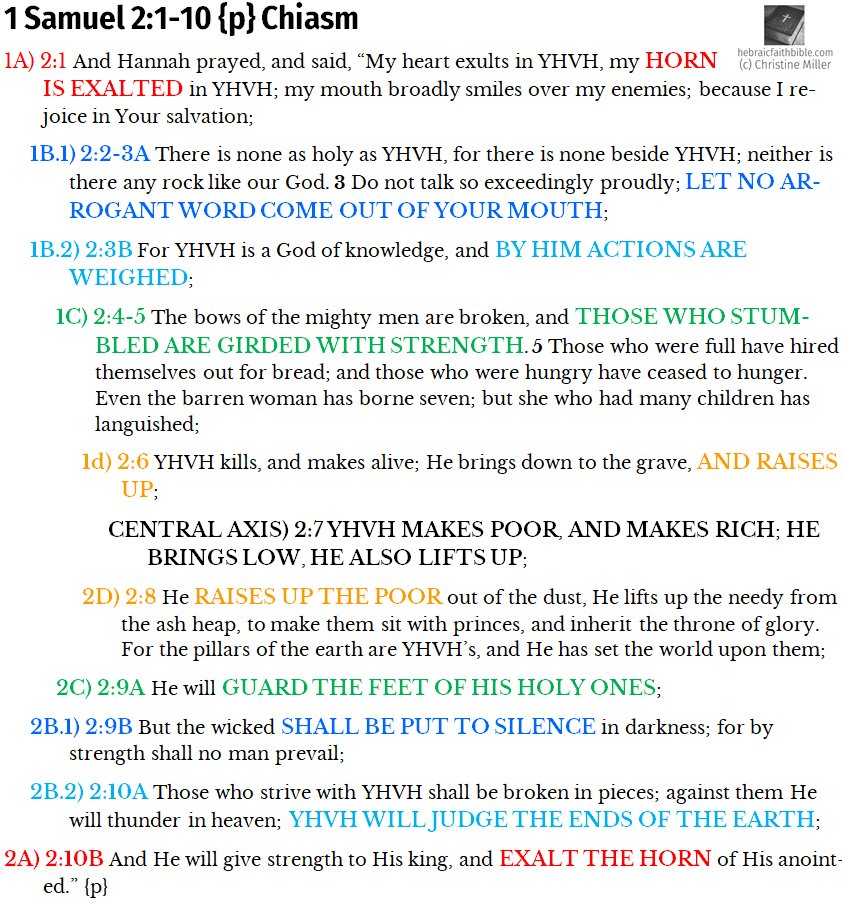Read 1 Samuel 2 here (text coming …) or at Bible Gateway.
The Hebrew paragraphs:
2:1-10 {p} Hannah’s prayer of thanksgiving and praise
2:11-21 {s} The wicked sons of Eli contrasted with righteous Elkanah and Hannah, and her sons and daughters
2:22-26 {p} Eli rebuked his sons but they did not listen/ Samuel grew in stature and favor
2:27-36 {p} The prophecy of the destruction of Eli’s house, and the raising up of a righteous priest
The Strong themes:
1:1-2:10 {s+p} Hannah’s prayer for Samuel/ her praise, for YHVH answered her
2:11-26 {s+p} The wicked sons of Eli contrasted with the righteous son of Elkanah and Hannah
1 Samuel 2:1-10 Chiastic Structure:
What does Hannah mean when she says, “My horn is exalted in YHVH”?
The Hebrew for “horn” is Strong’s H7161, qeren;
“Horn, as of an ox, a goat, of a ram. … A vessel made of horn … A horn for blowing … Metaphorically a symbol of strength and power, an image taken from bulls and other horned animals …” Gesenius’ Hebrew-Chaldee Lexicon.
The International Standard Bible Encyclopedia tells me “exalt the horn” means to clothe with strength.
The Jamieson, Fausset, and Brown Commentary tells me that to “lift … up the horn” means “to exalt power, here, of the wicked himself—that is, to be arrogant or self-elated;” i.e. the wicked lifts up his own horn, his own authority, in defiance and rebellion against YHVH’s authority over him.
Smith’s Bible Dictionary says “horn” is often used metaphorically to signify strength and honor, because horns are the chief weapons and ornaments of the animals which possess them; that they can signify victory; supreme authority; thus concretely, kings, or kingdoms.
The use of “horn” to mean strength, power, or authority is continued throughout the Hebrew Testament. Hannah is saying that she had little strength when she was barren and her rival vexed her sorely because of it; but now that YHVH has answered her prayer and given her a son, He has exalted her strength in the face of her adversaries.


















Leave a Reply